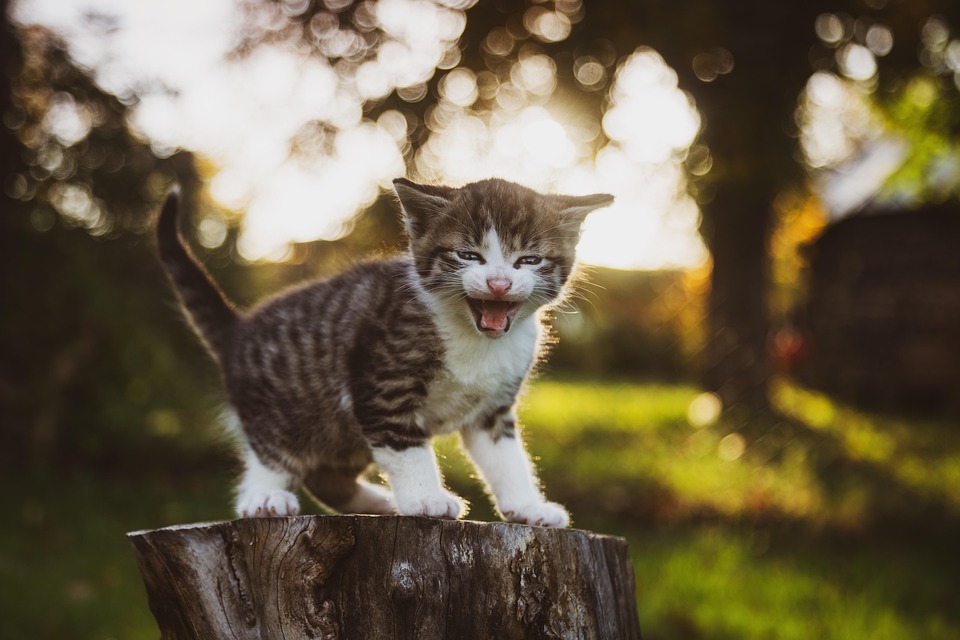
Nurturing Feline Wellness: A Comprehensive Guide to Raising Healthy Kittens
Raising kittens can be an incredibly rewarding experience, but it also comes with its own set of challenges. Whether you’re a new or experienced cat owner, understanding the essentials of kitten care is crucial to ensuring that your little feline friends grow into happy, healthy adult cats. This comprehensive guide delves into the various aspects of kitten care, from nutrition to socialization, providing valuable insights and practical advice.
The Early Days: Preparing for Your Kitten’s Arrival
Before bringing a kitten home, it’s essential to prepare your living space. This includes kitten-proofing your home by removing any hazards such as toxic plants, small objects, or electrical cords. Set up a cozy area with a comfortable bed, litter box, and food and water dishes.
Ensure you have the necessary supplies: high-quality kitten food, a litter box, toys, scratching posts, and grooming tools. A trip to the veterinarian is also necessary to check for any health issues and to discuss vaccinations and spaying or neutering.
Nutrition: Building a Foundation for Health
Proper nutrition is fundamental to a kitten’s development. Kittens require a diet rich in protein, vitamins, and minerals to support their rapid growth. Commercial kitten food is specially formulated to meet these nutritional needs.
1. **Choosing the Right Food**: Opt for high-quality commercial kitten food, either wet or dry, ensuring it is labeled as complete and balanced. Consult your veterinarian for specific dietary recommendations based on your kitten’s health and breed.
2. **Feeding Schedule**: Kittens have small stomachs, so they require smaller, more frequent meals. Typically, feeding four times a day until six months old, then transitioning to three meals, is recommended.
3. **Hydration**: Ensure your kitten always has access to fresh water. Wet food can also help with hydration, especially if your kitten is not drinking enough water.
Health and Wellness: Veterinary Care and Preventative Measures
Regular veterinary care is essential to monitor your kitten’s health and catch any issues early. Preventative care can significantly contribute to your kitten’s long-term wellbeing.
1. **Vaccinations**: Kittens need a series of vaccinations to protect against common feline diseases. These typically include vaccines for feline herpesvirus, calicivirus, and panleukopenia (FVRCP), as well as rabies.
2. **Spaying/Neutering**: This is usually done around six months of age and helps prevent unwanted litters and reduces the risk of certain health issues and behavioral problems.
3. **Parasite Control**: Regular deworming and flea control are crucial. Consult your veterinarian for appropriate treatments based on your kitten’s age and environment.
4. **Regular Check-Ups**: Schedule regular veterinary visits to monitor your kitten’s growth and address any health concerns promptly.
Socialization: Raising a Well-Adjusted Cat
Socialization is vital for kittens to develop into well-adjusted adult cats. The critical period is between 2 and 9 weeks of age, but ongoing socialization is beneficial.
1. **Handling and Interaction**: Gently handle your kitten daily to get them accustomed to human touch. This includes touching their paws, ears, and mouth, which helps with grooming and veterinary visits.
2. **Exposure to New Experiences**: Introduce your kitten to different people, environments, and experiences, such as car rides or meeting other pets, in a controlled and positive manner.
3. **Playtime**: Play is crucial for physical and mental development. Use toys that encourage natural behaviors like chasing and pouncing.
Environment: Creating a Safe and Stimulating Space
A well-designed environment can contribute significantly to your kitten’s overall health and happiness.
1. **Safe Space**: Ensure your home is kitten-proofed, removing any potential hazards such as loose wires or toxic plants.
2. **Litter Box Training**: Most kittens quickly learn to use a litter box. Place the litter box in a quiet, accessible location and keep it clean.
3. **Enrichment**: Provide toys, scratching posts, and climbing structures to stimulate your kitten’s mind and body.
4. **Comfortable Resting Area**: Ensure your kitten has a warm, comfortable place to sleep and retreat to when they need rest or alone time.
Grooming: Establishing a Routine
Regular grooming is important for maintaining your kitten’s health and comfort.
1. **Brushing**: Regular brushing helps reduce shedding and prevents matting, especially in long-haired breeds. It also provides an opportunity to check for any skin issues or parasites.
2. **Nail Trimming**: Trim your kitten’s nails regularly to prevent overgrowth and reduce the risk of injury from scratching.
3. **Dental Care**: Start a dental care routine early by brushing your kitten’s teeth with a pet-safe toothpaste to prevent dental disease.
4. **Bathing**: Kittens are generally good at keeping themselves clean, but occasional baths may be necessary if they get particularly dirty.
Monitoring Your Kitten’s Development
Keeping a close eye on your kitten’s growth and behavior can help identify any issues early.
1. **Growth Milestones**: Track your kitten’s weight and growth. Any significant changes or failure to thrive should be discussed with your veterinarian.
2. **Behavioral Cues**: Pay attention to your kitten’s behavior. Lethargy, aggression, or changes in appetite can indicate health or behavioral issues that need addressing.
3. **Bonding**: Spend quality time with your kitten to strengthen your bond and provide them with the attention and affection they need.
Conclusion
Raising a kitten requires dedication, patience, and knowledge. By providing proper nutrition, veterinary care, socialization, and a safe environment, you can ensure your kitten grows into a healthy and happy adult cat. Whether you’re new to kitten care or an experienced cat owner, following these guidelines will help you nurture your feline friend’s wellbeing and ensure a rewarding relationship for years to come.
#ChatGPT assisted in the creation of this article.








